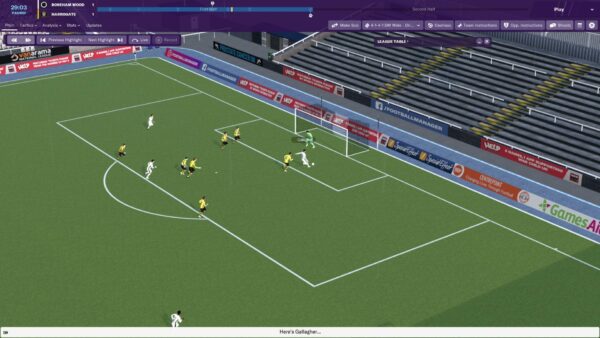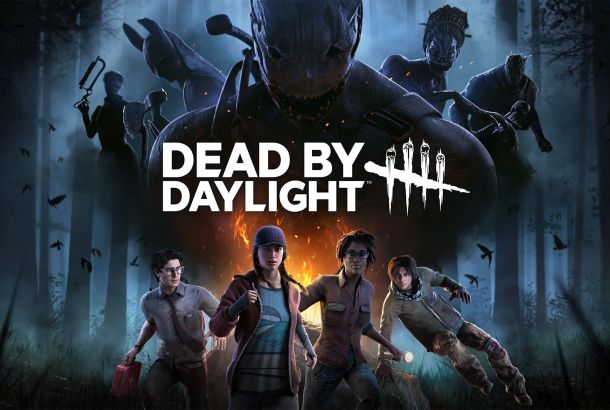Review: Football Manager 2019
By Jeremy Bijl

Football Manager is back, and it’s business as usual for the series. Whilst the game, having been subject to decades of polish, remains largely the same at its core, there’s some major improvements in FM19 which make it a worthy installment in the stellar series. Whilst some familiars issues have remained unaddressed, there’s enough here to provide a meaty update to the iconic series, even if it doesn’t try to reinvent the wheel. A lack of major innovation probably means that this iteration is not an essential upgrade for anyone who isn’t a hardcore player, but it’s definitely another step forward this year, even if there was room for one more.
The most welcome change (after the fact that, mercifully, the awful menu music of FM18 has gone) is the tactical changes. It’s not quite an overhaul, but it’s certainly a big change. In FM19, tactical instructions are split into three distinct panels: in possession, out of possession, and in transition. The latter two of these, in particular, have received some much needed attention, and, overall, the new tactics system allows, for the first time, to manage all phases of play rather than treating the match plan as homogeneous.

FM19 also comes with a number of tactical presets, such as tiki taka, wing play and gegenpressing. Whilst this is a nice little addition for those struggling to find their feet tactically, I couldn’t help but feel it puts things on a plate for you too easily. Part of the challenge of FM has always been not only conceiving of a tactic, but executing it, and presets make this a little too simple for my liking. Of course, customisation options still abound, but in a genre that will always favour results, the temptation of choosing a tactic preordained by Sports Interactive (SI) may be too strong for its own good.
Once you’ve finished tinkering and make your way onto the pitch, you’ll also find some decent tweaks to the match engine. Gone are the janky animations, the bizarre pass backs (mostly), the dawdling ‘stand on spot and turn in circles’ thing, and the fluorescent green pitch, and the match engine feels sharper, more responsive to tactical tweaks, and more attuned to representing football as the beautiful game, rather than the rather ugly affair that was last year. Adding noticeable curve to the ball physics is a nice touch, whilst a greater variety of goal types immerse you more in the experience than ever before.
As most footballers (I imagine) will tell you, the training pitch is just as important as the match pitch. Accordingly, training has finally received some attention, and this time it is an overhaul. Previously so minimal, SI have gone to the other end of the spectrum with a wave of new training features so zealous its almost overwhelming. Whilst this does result in the screen being unusually cluttered for a Football Manager game, this goes a long way to paying attention to the gaps between matches, which previously felt as long as your average international break. This, along with a slightly enhanced player interaction system, meant my desire to holiday between games is the lowest it’s ever been.

Unfortunately, as I alluded to in my introduction, there are a couple of features that remain criminally under-developed, and have now been points of frustration for several years. I am talking primarily, of course, about press conferences.
Press conferences: the bain of every manager’s existence. If you’ve played a Football Manager game for any length of time, you’ll know how dull, monotonous and unrewarding it is to wade through the in-game press’ array of recycled questions (sometimes they ask over fifteen) in order to progress to the match. Doing a Fergie and sending your assistant is always an option, but given that these questions can affect match performance, it’s a dangerous game when my assistant has the tactical nous and interpersonal subtlety of a P.E teacher.
What really doesn’t help is that the questions are so middle of the road to begin with. SI has always struggled with recreating the drama of football by way of its press, and it really struggles here. Fortunately, the game’s relentless stat-tracking and the strength of the overall product means you’ll always thrive by creating your own narrative for your team, but much work is needed here if FM is to get to that next level.

Set pieces are another area that remains ignored, which is a shame considering how important they now are in the modern game – just look at England’s World Cup exploits. Perhaps the most damning criticism I can give these two areas is that I flagged them as major worries last year, and they remain exactly the same. It’s started to make the game feel a little lopsided; ridiculous detail often sitting right next to over-simplicity. Perhaps SI want to leave themselves some major work to do on FM20.
FM’s biggest strength remains its insanely large and detailed database, which remains dutifully updated once again. This maintenance is vital, making the often number-based in game universe feel alive and diverse. From Barcelona’s first team to Harrogate Town AFC’s backroom staff, not a single corner has been cut in FM19.
Reviewing FM is, in some ways, an inherently flawed idea as many of the problems with the game as the game’s simulation moves away from the controlled laboratory that is SI’s recreation of real life, towards the murky waters of regens. This is hard to cover in a review as it doesn’t really become clear for at least ten seasons (maybe even fifteen) and getting that far can take well over 500 hours. If you’re sad like me and you make it there every year, you’ll have noticed that, over time, regens sap the diversity out of the database and result in a game full of generic players (who look really weird to boot). The game often becomes unbalanced at this point, but I’ll address whether this has changed at a later date.
Overall, this is another great edition of FM. Whilst it might not be a landmark installment in the series, it definitely throws down some markers and represents a significant improvement in the series, even if more could have been done to push forward some of its more archaic features. Whether it represents £37.99 of improvement is certainly up for debate, and whether this game is for you probably depends on what you want out of FM. If you are looking for an ultra-detailed installment with a rigorous focus on tactics and training, look no further. If you are waiting for the long-vaunted additions of improved man management, press interaction and enhanced personality, you may be best off waiting another year.
7.5/10







